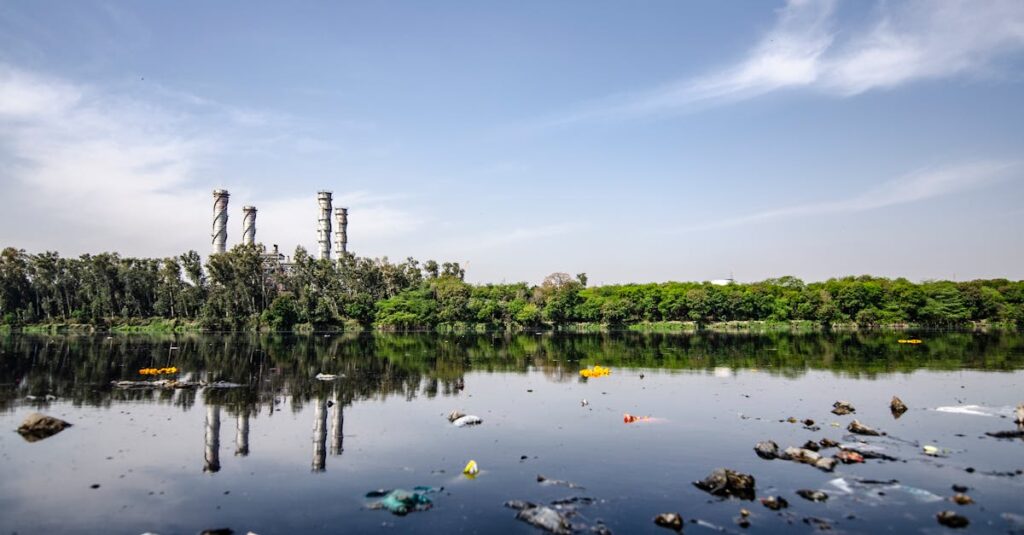
Program Overview
Program Duration: 2 Years (4 Semesters) Qualification Level: Diploma
The Diploma in Environmental Management at Summit Heights Institute is a cutting-edge program designed to equip students with the knowledge and practical skills to address complex environmental challenges in a rapidly changing world. This curriculum is meticulously crafted to meet current industry demands and global trends, focusing on sustainability, climate action, resource management, and environmental governance. Graduates will be prepared for diverse roles in environmental consulting, corporate sustainability, government agencies, non-profit organizations, and green industries.
Key Program Pillars
- Holistic Environmental Understanding: Integrating scientific, social, economic, and policy perspectives.
- Sustainability & Circular Economy: Driving resource efficiency and responsible consumption.
- Climate Action & Resilience: Addressing climate change impacts and fostering adaptation.
- Digital & Data Application: Utilizing technology for environmental monitoring and analysis.
- Regulatory Compliance & Governance: Navigating environmental laws and international agreements.
- Practical & Project-Based Learning: Applying theoretical knowledge to real-world environmental challenges.
Learning Outcomes
Upon successful completion of this Diploma, graduates will be able to:
- Analyze complex environmental issues using interdisciplinary scientific, social, and economic frameworks.
- Apply principles of sustainable development and circular economy to various industry contexts.
- Interpret and apply national and international environmental laws, policies, and regulations.
- Conduct environmental impact assessments (EIAs) and develop effective mitigation strategies.
- Design and implement environmental management systems (EMS) and conduct environmental audits.
- Utilize Geographic Information Systems (GIS) and other digital tools for environmental data collection, analysis, and reporting.
- Develop strategies for climate change adaptation and mitigation, including renewable energy solutions.
- Manage waste streams, promote resource recovery, and control various forms of pollution.
- Assess and manage biodiversity, natural resources, and ecosystem services.
- Communicate environmental information effectively to diverse stakeholders and lead environmental projects.
- Contribute to corporate sustainability initiatives and integrate Environmental, Social, and Governance (ESG) principles.
Curriculum Structure
Year 1: Foundational Environmental Science & Policy
Semester 1
- ENV101: Introduction to Environmental Science & Sustainability
- Description: This foundational module introduces core ecological principles, major environmental challenges (e.g., population growth, resource depletion, pollution), and the concept of sustainable development. It explores the interconnectedness of natural systems and human activities.
- Learning Outcomes: Define key environmental concepts; explain major environmental problems; differentiate between various sustainability frameworks; understand human impact on ecosystems.
- ENV102: Environmental Law & Governance
- Description: Provides an overview of national and international environmental legislation, regulatory frameworks, and governance structures. Topics include environmental rights, pollution control laws, conservation acts, and the role of international agreements.
- Learning Outcomes: Identify key environmental laws and regulations; explain the principles of environmental governance; understand legal compliance requirements; analyze the role of international environmental agreements.
- ENV103: Ecology & Biodiversity Conservation
- Description: Focuses on ecological principles, ecosystem functions, and the importance of biodiversity. Students will learn about threats to biodiversity, conservation strategies, protected areas management, and the valuation of ecosystem services.
- Learning Outcomes: Describe ecological concepts; identify threats to biodiversity; evaluate conservation strategies; understand ecosystem services and their value.
- ENV104: Environmental Chemistry & Pollution Control
- Description: Covers the basic chemical principles relevant to environmental processes and pollution. It examines sources, pathways, and impacts of air, water, and soil pollution, along with fundamental control technologies and remediation strategies.
- Learning Outcomes: Explain basic environmental chemistry; identify major pollutants and their impacts; describe common pollution control technologies; understand principles of environmental remediation.
Semester 2
- ENV105: Geographic Information Systems (GIS) for Environmental Management
- Description: Introduces the fundamentals of GIS for spatial data collection, analysis, and visualization in environmental contexts. Students will gain hands-on experience with GIS software for mapping environmental features, analyzing spatial patterns, and supporting decision-making.
- Learning Outcomes: Understand GIS concepts; acquire and process spatial environmental data; perform basic GIS analysis; create environmental maps and visualizations.
- ENV106: Climate Change: Science, Impacts & Policy
- Description: Explores the science of climate change, its observed and projected impacts on natural and human systems, and global and national policy responses. Topics include greenhouse gas emissions, climate modeling, vulnerability, and international climate agreements.
- Learning Outcomes: Explain the science of climate change; identify key climate change impacts; analyze international climate policy frameworks; understand climate vulnerability.
- ENV107: Water Resource Management & Quality
- Description: Focuses on the principles of integrated water resource management, water quality assessment, and pollution prevention. Topics include water scarcity, watershed management, wastewater treatment, and sustainable water use practices.
- Learning Outcomes: Describe principles of water resource management; assess water quality parameters; identify sources of water pollution; evaluate sustainable water use strategies.
- ENV108: Introduction to Circular Economy & Waste Management
- Description: Introduces the concepts of circular economy, resource efficiency, and sustainable waste management. It covers waste hierarchy, waste characterization, recycling, composting, and emerging technologies for waste-to-resource conversion.
- Learning Outcomes: Explain circular economy principles; apply the waste hierarchy; describe different waste management methods; identify opportunities for resource recovery.
Year 2: Applied Management & Emerging Trends
Semester 3
- ENV201: Environmental Impact Assessment (EIA) & Strategic Environmental Assessment (SEA)
- Description: Provides a practical understanding of EIA and SEA processes, methodologies, and legal requirements. Students will learn to identify, predict, evaluate, and mitigate environmental impacts of projects and policies.
- Learning Outcomes: Conduct an EIA process; identify and assess environmental impacts; develop mitigation measures; understand the principles of SEA.
- ENV202: Environmental Management Systems (EMS) & Auditing
- Description: Focuses on the development, implementation, and auditing of environmental management systems, particularly ISO 14001. Students will learn about environmental performance evaluation, compliance auditing, and continuous improvement.
- Learning Outcomes: Explain the components of an EMS; implement an ISO 14001-compliant system; conduct internal environmental audits; evaluate environmental performance.
- ENV203: Renewable Energy & Green Technologies
- Description: Explores various renewable energy sources (solar, wind, hydro, geothermal, biomass) and their applications. It also covers other green technologies and innovations aimed at reducing environmental footprints and promoting sustainability.
- Learning Outcomes: Describe different renewable energy technologies; evaluate the feasibility of green technologies; understand the challenges and opportunities in renewable energy adoption.
- ENV204: Corporate Environmental Management & ESG
- Description: Examines the role of environmental management within corporate settings, focusing on corporate social responsibility (CSR), Environmental, Social, and Governance (ESG) reporting, green supply chains, and stakeholder engagement.
- Learning Outcomes: Understand corporate environmental responsibilities; explain ESG principles and reporting; analyze green supply chain practices; develop stakeholder engagement strategies.
Semester 4
- ENV205: Environmental Risk Assessment & Management
- Description: Covers methodologies for identifying, assessing, and managing environmental risks, including chemical spills, natural disasters, and climate-related hazards. Focuses on risk communication and emergency preparedness.
- Learning Outcomes: Conduct environmental risk assessments; develop risk management plans; communicate environmental risks effectively; design emergency response protocols.
- ENV206: Sustainable Urban Planning & Development
- Description: Explores principles and practices for creating sustainable cities and communities. Topics include green infrastructure, sustainable transportation, urban biodiversity, and resilient urban systems.
- Learning Outcomes: Apply sustainable urban planning principles; identify green infrastructure solutions; understand challenges in urban sustainability; propose resilient urban development strategies.
- ENV207: Environmental Data Analysis & Reporting
- Description: Builds on GIS knowledge, focusing on advanced statistical analysis of environmental data, data visualization, and effective environmental reporting for various audiences (e.g., compliance reports, sustainability reports).
- Learning Outcomes: Perform advanced environmental data analysis; create professional environmental reports; communicate complex environmental data clearly; utilize data for evidence-based decision-making.
- ENV208: Environmental Project Management & Capstone
- Description: This capstone module integrates all previous learning through a substantial, real-world environmental project or case study. Students will apply project management principles to plan, execute, and evaluate an environmental initiative, culminating in a comprehensive report and presentation.
- Learning Outcomes: Plan and manage an environmental project; apply integrated environmental knowledge to a practical challenge; conduct independent research; present professional environmental solutions.
